- Home
- international
- news
- Answers to the top 9 questions about the Taliban victory in Afghanistan asked on Google
Answers to the top 9 questions about the Taliban victory in Afghanistan asked on Google
Bethany Dawson

- Some of the top trending questions about the crisis in Afghanistan include who the Taliban are and why the US was involved in the first place.
- We've spoken to experts to give you the best answers to the most asked questions on Google.
- Here is information on the 9 most asked points.
Since the dramatic images of the sudden Taliban capture of Kabul confirmed its victory in Afghanistan this week, people hungry for an explanation of the fast-moving and complex situation have been turning to the Google search engine for answers.
For example, searches for "who leads the Taliban" shot up by 3500% compared to 12 months ago, according to Google Trends data.
To make sense of the rapidly unfolding situation, here is an explainer to the most-asked questions, from how women's rights will be impacted, to where the refugees are going, to how you can help.
Who are the Taliban?
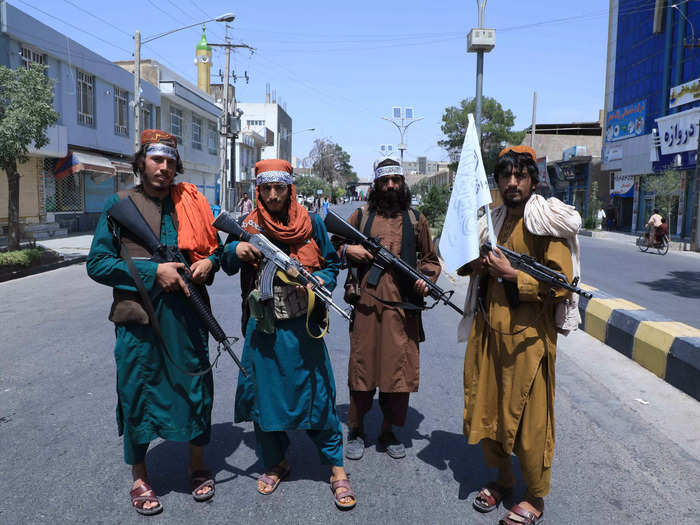
The Taliban, who call themselves the Islamic Emirate of Afghanistan, is an Islamist religious-political movement and armed insurgency in Afghanistan - meaning they advance their ideologies by military means.
They are regarded by many countries and organizations, including the United Nations, as a terrorist group.
The Taliban ruled Afghanistan from 1996 to 2001, which started after the Taliban first captured the capital, Kabul, during the period known as the Afghan Civil War.
During this time, the Taliban committed a series of atrocities, including the massacres of Afghan civilians and denying UN food provisions to over 160,000 Afghan people.
Who is the leader of the Taliban?
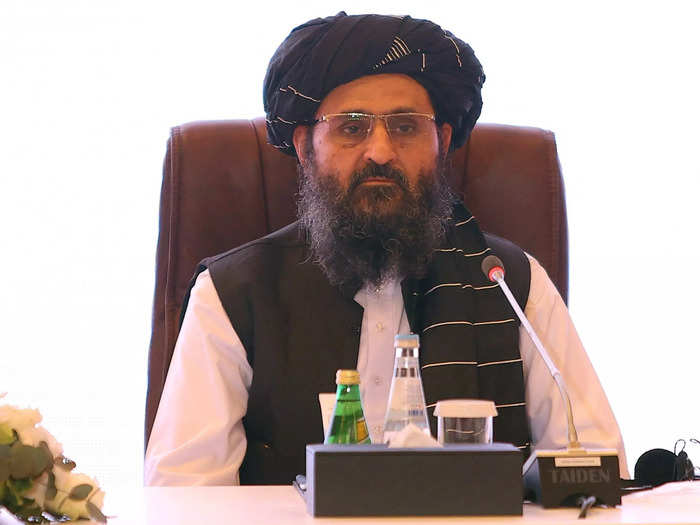
There are two people widely considered to be leaders.
The first is Hibatullah Akhundzada formerly known as the Supreme Commander of the Taliban.
However, Abdul Ghani Baradar - the co-founder of the Taliban and its current political leader - is seen as a far more active leader than Akhundzada.
Akhundzada is more a behind-the-scenes actor - even within the highly secretive Taliban. In fact, his lack of public presence has led to the previous speculation that he may be dead, which the Taliban has denied.
It is thought that Baradar could become the President.
Read Insider's Matthew Loh's full report on who forms the Taliban's inner circle.
Where are Afghan refugees going?
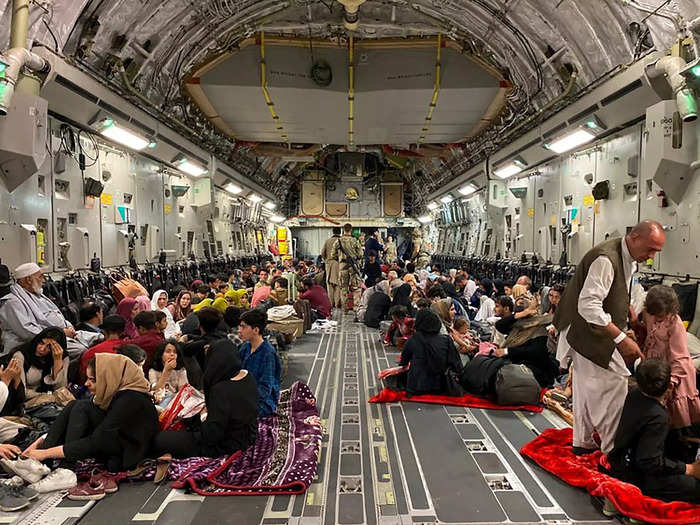
In 2020, almost 1.5 million refugees from Afghanistan were living in neighboring Pakistan, with 780,000 seeking sanctuary in Iran. Only 9,000 were recorded as living in the UK, and is as low as 2000 for the USA.
These patterns are expected to remain but with more leniency. For example, the EU halting deportations of refugees and the US expanding its support for Afghans who worked with the American military in Afghanistan. The Australian government has stated that it will offer visas to 3000 people fleeing Afghanistan due to the current crisis. Britain has said it will accept an initial 5000 over the span of 5 years.
The majority of displaced persons from Afghanistan, however, remain within the country. Steve Valdez-Symonds from Amnesty UK told Insider that the people who get out of the country might be the safest — our concern should lie with people who can't get out.
"The first issue is that some people who would be refugees if they could are not able to go anywhere. They may not be able to get to borders. They may not be able to move at this time safely.
"In Kabul, many people can't safely get to the airport and even if they could get into the airport. They won't be admitted in, and they won't be able to get onto a flight."
How are women's rights in Afghanistan threatened right now?
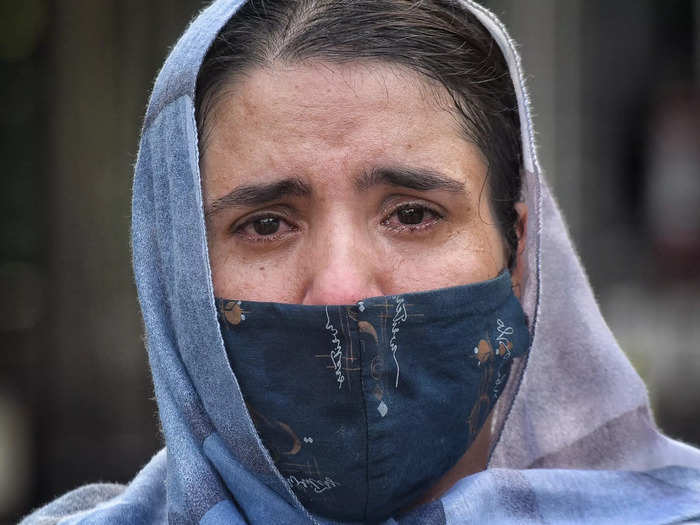
Since the fall of the Taliban in 2001, women have been allowed to work, study, drive and go about life without a male chaperone.
Whilst the Taliban have said that they will continue to preserve women's rights and allow them to work and study, there's universal skepticism about this pledge.
The UK Home Secretary Priti Patel has said that she "doesn't believe" that this promise will be kept.
Many high-profile Afghan women have expressed fears that the Taliban will not protect women's rights. The first female Afghan air force pilot told Fox News that the Taliban would "hurt women the most."
There's already signs that the Taliban is hurting women's rights - they told a journalist to "stand aside" because she was a woman. You can read Insider's John Haltiwanger's report on the full incident here.
Shafeek Seddiq, an anti-corruption and anti-terrorism lawyer, formally based out of Afghanistan, spoke to Insider about why we're seeing the Taliban say that they're taking a different approach — and why that might not be true:
"The Taliban understand they need international support to run the country and the government. They need this support to have hundreds and thousands of soldiers and military in operation, and collect to taxes, and have revenues.
"They learned this lesson from the last time. They know when they tell the world, 'we don't care about you, we're not going to do what you're asking us,' they collapse, so now they're saying different things. But, someone who has these ideas, the craziest ideas, religious or otherwise, will always be extremists."
What is Sharia Law in Afghanistan?
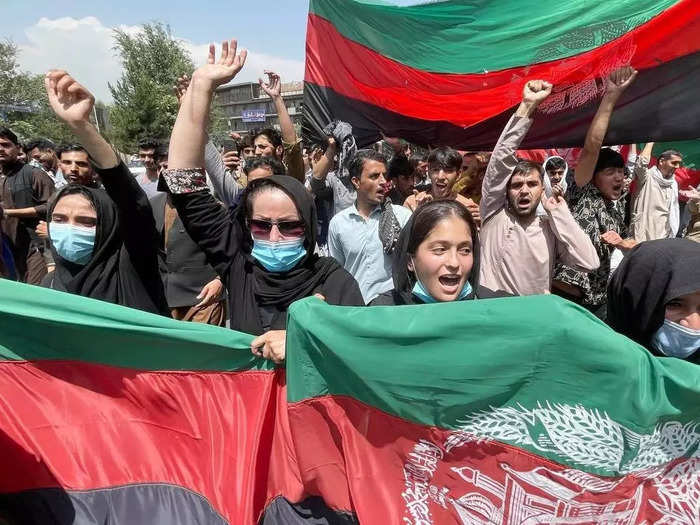
Sharia law is the religious law — a set of rules — which are part of the Quran, the holy book of all Muslims.
"Sharia" translates from Arabic as "the clear, well-trodden path to water." It includes instructions on all aspects of Islamic life - from fasting, and prayers, to how to conduct business - with the ultimate intention of honoring Allah.
Like many religious texts, there are different interpretations of Sharia law, with some groups taking more liberal views of what it means.
However, the Taliban take a particularly strict and radical interpretation, which has previously meant that women aren't allowed to leave their homes without a male chaperone, for example, and gay people are an abomination and should be executed.
Other strict interpretations of Sharia law that the Taliban have invoked include punishing thieves by cutting off their hands.
How do I help Afghanistan?
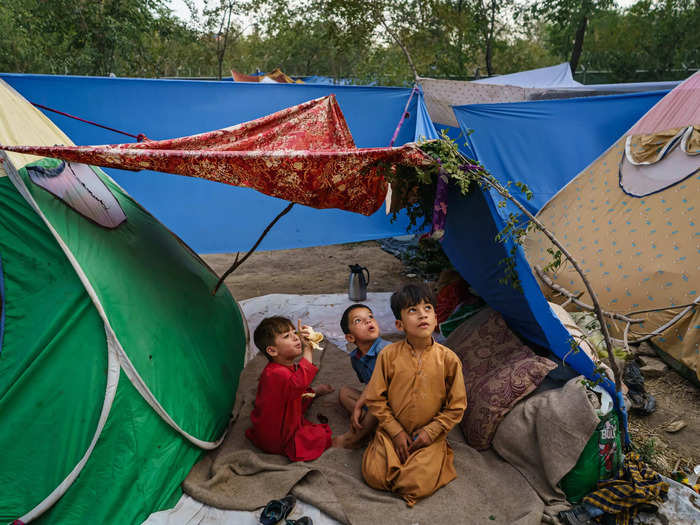
"How to help Afghanistan" and "how to help Afghan refugees" has been a search term that has spiked since Kabul fell to the Taliban.
Amnesty UK's refugee and migrant rights program director, Steve Valdez-Symonds, told Insider some ways to help from afar:
"Some people in our local communities are Afghans, Afghan refugees, Afghan British citizens, Afghans in the asylum system. Being even just being a little bit aware of that and being friendly and supportive at this time, because all of these people were likely to have family and friends who they're extremely scared about at this time.
"These people are likely to welcome that acknowledgment and support from their communities."
"People could make clear to their local councils that they want to see them participate in the resettlement of Afghan refugees and that they're available to provide support to new arrivals."
Valdez-Symonds, however, adds that there's a more political and structural change that he believes should be pushed for.
"There should be pressure put on our local representatives,our MPs, and political figures. That should be about making sure that all Afghans in this country are safe, and not just that there's some temporary suspension on returning anybody to the country — but actually, all Afghans who are here are going to get their papers and be told that it's clear that it's not safe to go back. They can get on with their lives here."
"If the rules aren't changed, then there really is no, no hope for some people."
Does Afghanistan have nuclear weapons?
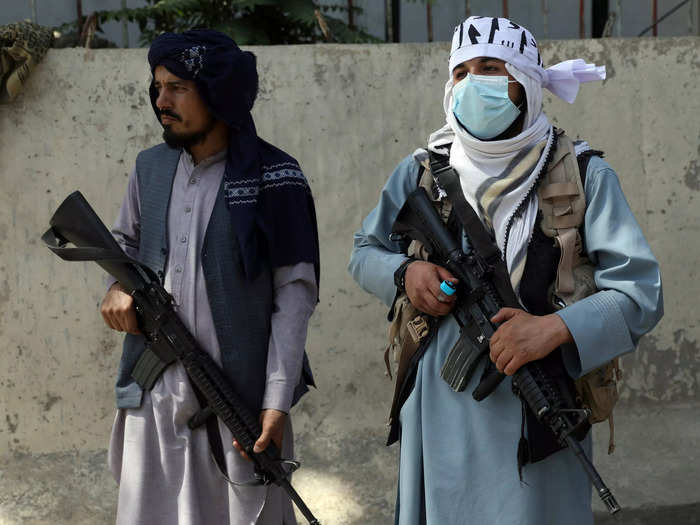
This question has been searched 2800% more than it was a year ago.
In short, no. There's never been any evidence found of nuclear weapons in Afghanistan.
Only nine countries have nuclear weapons; UK, USA, China, North Korea, Israel, Pakistan, Russia, France, and India.
Before the Taliban takeover, Afghanistan signed the UN Treaty on the Non-Proliferation of Nuclear Weapons, an international pledge to stop the spread of nuclear weapons and promote nuclear disarmament.
Why were the US and UK in Afghanistan in the first place?
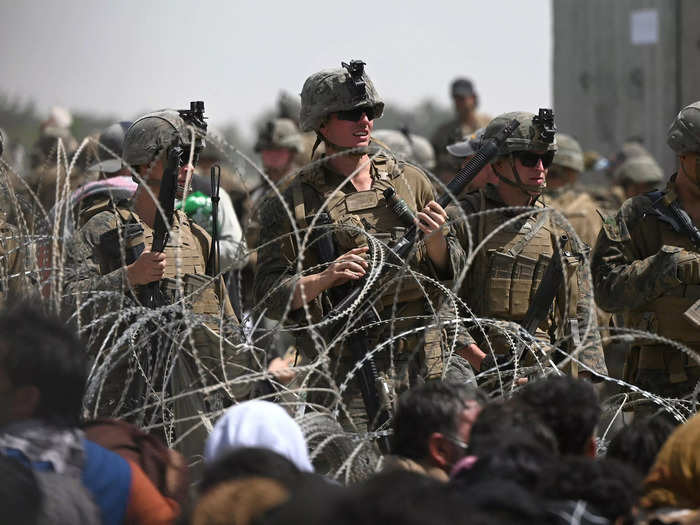
There is much confusion about why the USA and UK were even in Afghanistan, to begin with.
Afghanistan has been occupied by British and American forces since 2001 after the US military invaded the country post 9-11to dismantle Al-Qaeda, who took responsibility for the terrorist demolition of the Twin Towers. The UK supported the invasion as an ally.
When this September invasion happened, the Taliban led the government of Afghanistan.
Then-President George W. Bush demanded that the Taliban expelled Al-Qaeda and extradited Osama Bin Laden. The Taliban declined to do unless proof of Bin Laden's involvement in the 9/11 attacks could be proven by the USA.
The USA rapidly set up military bases around Afghanistan.
On November 12, 2001, the Taliban abandoned Kabul and it was in the handed over of coalition forces.
At this point, other major Taliban positions began to fall, the stronghold was sieged, and the remaining Taliban fighters were ford to retreat to southeastern Afghanistan, considered the birthplace of the Taliban movement.
Military efforts by UK and US forces continued across Afghanistan to dissolve the Taliban. In December 2001, the UN hosted the Bonn Conference, wherein four Afghan groups participated, and created the Afghan Interim Authority to return Afghan sovereignty.
On December 20, 2001, the UN authorized the introduction of an International Security Assistance Force, an international body of Governments to support the Afghans' security in Kabul and surrounding areas.
This Government remained in force until August 14, 2021, when the Taliban seized Kabul following a lightning military campaign.
Why did the US pull out of Afghanistan?
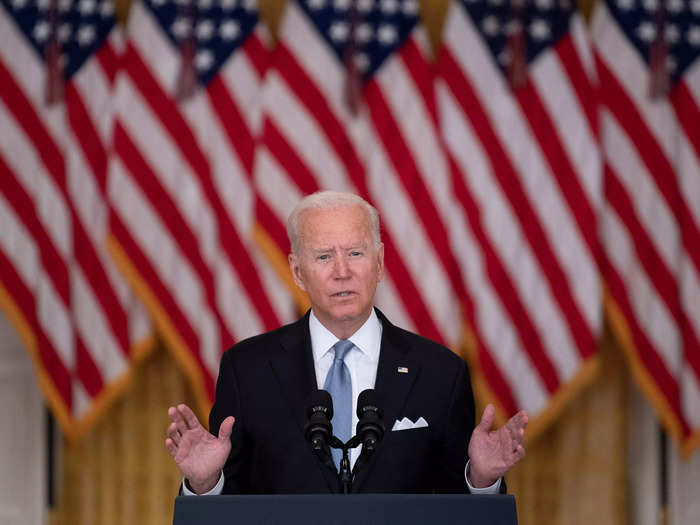
The Biden administration began to withdraw troops from Afghanistan on May 1, 2021, following a withdrawal agreement between the Trump administration and the Taliban in February 2020.
The withdrawal was for the sake of ending what Biden has called "America's longest war."
However, on August 6, 2021, the Taliban seized control of its first province and then captured the capital city nine days later.
This goes contrary to the agreement signed with the US - the expectation was that the Taliban would be peaceful, despite recent statements by the group that they would create an "Islamic government" in Afghanistan after the US left and would "continue our war to achieve our goal."
Biden's withdrawal has recieved a mass of criticism from both inside and outside the USA.
READ MORE ARTICLES ON
Popular Right Now
Popular Keywords
Advertisement